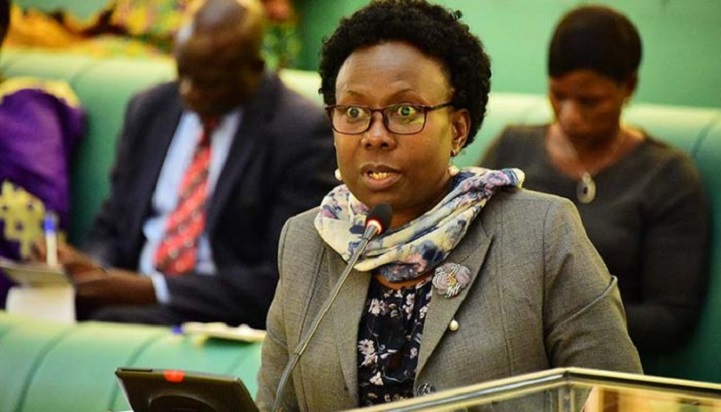The Bank of Uganda (BoU) Governor Prof. Emmanuel Tumusiime-Mutebile has revealed fresh details on the collapse of Crane Bank, the then 4th largest bank by assets in Uganda.
Addressing bankers at an informal dinner held at Serena Hotel, Kampala on August10, 2017, Mutebile began by saying that much of the commentary on Crane Bank saga, in the mainstream media, and especially on social media, betrays a profound misunderstanding of how bank supervision works and what can realistically be achieved by a bank regulator.
He then lifted the lid on events that preceded Crane Bank takeover by BoU in October last year.
“The problems in Crane Bank were first detected by the Bank of Uganda through an on-site inspection in May 2015. That inspection, and an audit report at the end of 2015, revealed that the extent of its bad loans was worse than had been reported by the bank,” Mutebile told members of Uganda Bankers Association (UBA).
“Through its on-site inspections, the BoU also began to detect suspicious transactions, related to ownership of buildings in which bank branches were situated,” he added.
Mutebile revealed that the BoU then followed the procedures of graded regulatory interventions calibrated to the scale of bank distress, which are set out in the Financial Institutions Act of 2004 as amended.
“These regulatory interventions are intended to give a distressed bank’s owners and managers the opportunity to rectify the bank’s problems while at the same time curbing risky activities, which might cause further losses and put deposits in jeopardy,” Mutebile said, adding that given the scale of the losses, to the extent that they were known at that time, it was necessary to call for Crane Bank to be recapitalised.
“When the owners failed to provide sufficient capital to restore Crane Bank to solvency, the BoU was left with no alternative but to take over the bank and place it under statutory management,” he said, adding: “Had we not done so, the losses would have continued to mount and this would have further eroded depositors’ funds. Only after Crane Bank had been taken into statutory management did it become possible to uncover the full scale of the alleged fraud in Crane Bank, through a forensic audit.”
“With that in mind, I strongly reject the claim made in some quarters that the BoU was too hasty in taking over Crane Bank and failed to give its owners sufficient time or help to rescue the bank by lending it money.
The owners had more than a year to rectify the distress in the bank but failed to do so. Lending Crane Bank money to enable it to keep operating despite its distress would not have stemmed the bank’s losses. It would merely have transferred those losses to the BoU.”
Mutebile added that in mid-2016, Crane Bank held 9 percent of the deposits in the banking market and so was potentially systemically important.
He noted that “a disorderly failure of Crane Bank could have had very damaging consequences for the banking industry, through contagion and loss of customer confidence. This was avoided.”
By taking Crane Bank into statutory management and assuring depositors that their money was safe, Mutebile said the BOU ensured that there was no contagion and no runs on Crane Bank or any other bank.
“Furthermore, with the bulk of Crane Bank’s liabilities and assets now transferred to DFCU bank, Crane bank’s customers have continued to access normal banking services,” he said, adding that the primary statutory responsibility of the BoU as bank regulator is to protect the stability of the banking system and safeguard the interests of bank depositors.
“In this regard I believe that our intervention and resolution of Crane Bank has been a success. No one in the BoU believes that its supervision is perfect and cannot be improved. We will learn from the failure of Crane Bank and strengthen our capacities and procedures for supervising banks. If mistakes were made, we will acknowledge this and ensure that they are not repeated in future,” Mutebile added.
He explained that any assessment of the performance of the BoU’s supervision must be made on the basis of hard facts and a proper understanding of the objectives and practicalities of bank supervision, as it is practised throughout the world, including Uganda.
“I strongly reject the allegations that my staff committed collusion or criminal offenses in the supervision of Crane Bank, which have been made in some quarters without a shred of evidence to support them. I hope that these remarks have helped to clarify our actions with regard to the intervention in, and resolution of, Crane Bank, and to put it in the broader context of our duties and responsibilities as bank regulators,” Mutebile told bankers.
Mutebile’s address to the bankers was mainly on fraud in banks.
“Fraud involves committing and concealing of malfeasance from the relevant authorities. In the normal course of events, bank supervision depends on the cooperation of the management of the supervised bank with the regulator,” Mutebile said, adding: “The regulator must trust the integrity of the management team at a supervised financial institution to provide accurate data to the regulator; unless the regulator has evidence for suspecting that vital information about the institution has been falsified or concealed.”
He added: “When frauds are committed, they are usually done in a manner, which cannot be detected either in the normal course of bank supervision or the external audit procedure. That unavoidably means that, in some cases, which are relatively uncommon, frauds are carried out undetected over a period of time.”






Did u use the options which were at your disposal and failed?